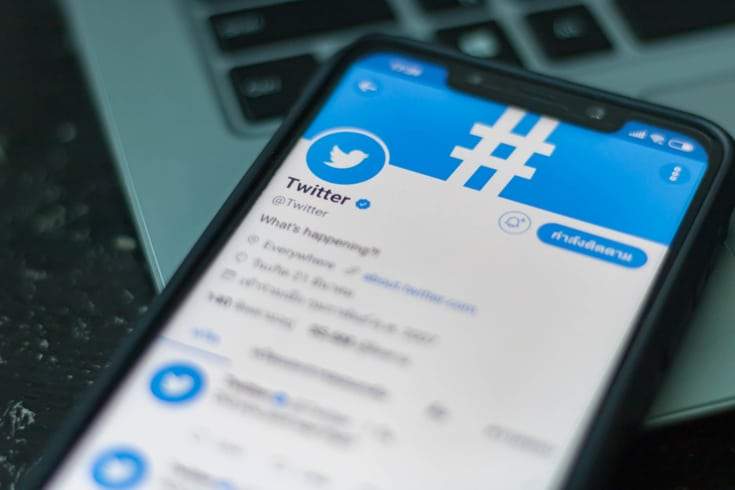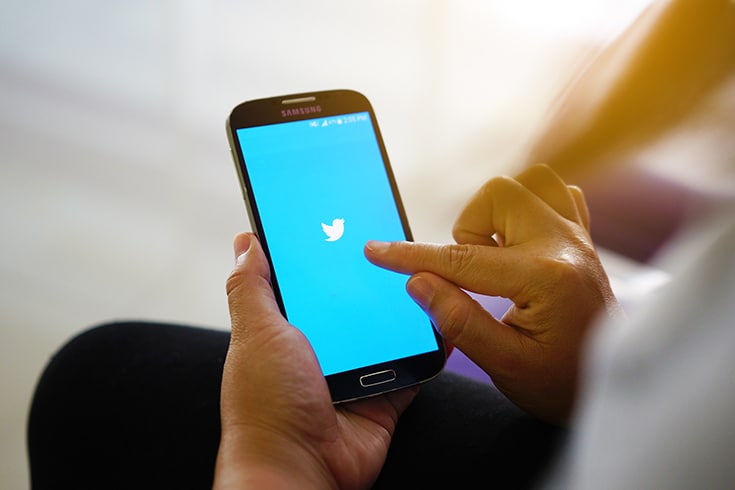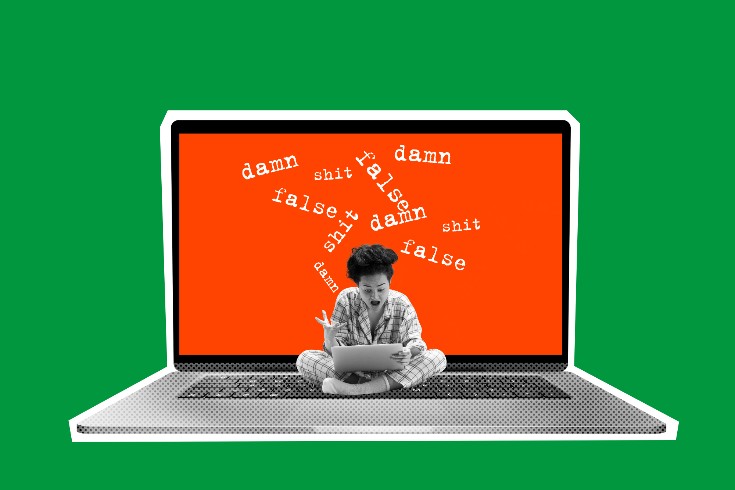Does Defamation on a Private Twitter Account Constitute Libel? Explaining Two Case Examples

By default, when you register on Twitter, your tweets are set to be public. However, for users who do not want their tweets to be seen by strangers, or who only want to use Twitter for communication within their circle of friends, Twitter allows you to make your tweets private. This is often referred to as a “locked account” feature.
There are various crimes that can be committed through tweets on Twitter, but how are they handled in court when defamation occurs through a locked account? We will explain two precedents surrounding Twitter’s locked accounts.
What is a Private Account?
Twitter does not use the term “private account”. Tweets with a lock icon are referred to as “private tweets”.
When you set your tweets to private, users who want to follow you will send a request. You can either approve or deny this request.
With the inclusion of permalinks to your tweets, your tweets will only be visible to your followers. Furthermore, your followers cannot retweet or comment on your tweets using the retweet button. Therefore, by setting your account to private, you can prevent your tweets from being spread, and even if you want to, you cannot spread them.
The most important point is that tweets from a private account will not appear in Twitter’s search function, nor will they be picked up by search engines (such as Google or Yahoo!). Only you and your followers can search for private tweets on Twitter.
While there are many conveniences, if you send a reply to someone who is not following you, you can see the reply tweet you sent, but the recipient cannot see that tweet. You will not be able to view and comment on the tweets of people who are not mutually following you on a private account.
So, what legal issues arise if you post something that damages someone else’s reputation through such a private account? Let’s explain the case law below.

Private Accounts and Insults
Infringement of honor, or so-called insult, is defined in case law as “a subjective evaluation (subjective honor) that a person has about his or her personal worth, which is a benefit worthy of legal protection. Insults that exceed the socially acceptable limit, such as expressions that are significantly vulgar or insulting, defamatory, etc., constitute a tort separate from defamation, as they infringe on personal rights” (Supreme Court of Japan, April 13, 2010).
Defamation and insult are both “crimes against honor”. In the Japanese Penal Code, defamation is defined as:
“Anyone who publicly states a fact and defames the honor of another person, regardless of the truth or falsehood of the fact, shall be punished by imprisonment for up to three years or a fine of up to 500,000 yen.”
Japanese Penal Code Article 230 (Defamation)
And insult is defined in the Penal Code as:
“Anyone who publicly insults another person, even without stating a fact, shall be punished by detention or a fine.”
Japanese Penal Code Article 231 (Insult)
A crime of defamation is committed by pointing out a true or false fact in a situation where an unspecified number of people will know (publicly), and lowering a person’s social evaluation. A crime of insult (infringement of honor) is committed by insulting a person in a situation where an unspecified number of people will know (publicly), without pointing out a fact. Let’s look at a lawsuit that was disputed over an insult made on a private account.
Court Proceedings
There was a case where the plaintiff sued the defendant, a friend from high school, for damages based on a tort, claiming that he suffered mental distress due to the defendant posting a picture of the plaintiff on Twitter and making statements that infringed on the plaintiff’s honor.
The plaintiff received a screenshot of the Twitter direct message screen, saved as an image, via the Instagram chat screen from a third party. The image showed a picture of the plaintiff and her child, and was tweeted by a private account “@○○”, which the plaintiff was not following, with statements such as:
- Holstein
- Real birthing machine = impossible =
- Gave birth to four kids, real birthing machine
- She’s 36, lol. Apparently, she’s called an old hag by high school students at her part-time job at a family restaurant, but that’s to be expected
- She’s a real ugly fatso
The plaintiff argued that these tweets not only infringed on her portrait rights but also unilaterally defamed her, constituting a tort against her.
In response, the defendant argued that even if the plaintiff’s honor was infringed, it was due to the actions of the third party who informed the plaintiff of the post on the private account, not the defendant’s actions. On the other hand, the plaintiff argued that on Twitter, due to its nature, posts are continuously made available for followers to view, and can easily be spread by retweets or copy & paste, etc. Therefore, regardless of whether the account is public or not, the post in question is an act of making the content of the post available to an unspecified number of third parties, and since the defendant made such a post, the defendant’s posting act constitutes an act that infringes on the plaintiff’s honor.

Court’s Decision
The court first acknowledged that the descriptions in the post in question were all infringements of the plaintiff’s honor. However, it did not acknowledge the establishment of insult (infringement of honor) for the following reasons:
“The account ‘@○○’ used by the defendant was a so-called private account, and the content of the posts on this account was always private, and only a limited number of followers allowed by the defendant could view the content. Since the plaintiff was not one of those followers, even if the defendant made the post in question, it does not mean that the defendant notified the plaintiff of the content of the post, and it cannot be said that a tort of infringement of honor against the plaintiff was established by the post in question.”
Tokyo District Court, May 29, 2019
The court ruled that since the content of the post was not notified to the plaintiff, it did not infringe on the plaintiff’s honor. In other words, just because the content that could infringe on the plaintiff’s honor was described, it cannot be recognized that a tort against the plaintiff was established.
In addition, the court stated that it cannot be said that the post in question had the possibility of being spread to an unspecified number of third parties just because there was someone who sent a screenshot of the viewed screen saved as an image, like the third party who happened to inform the plaintiff, and it cannot be said that the defendant had foreseen the possibility of spreading.
Furthermore, the court stated that it cannot deny the possibility that the plaintiff herself posted the photo on Instagram, so it cannot recognize that the defendant infringed on the plaintiff’s portrait rights just by posting the photo on Twitter, and it did not recognize the infringement of portrait rights either, and all of the plaintiff’s claims were dismissed.
Private Accounts and Defamation
Court Proceedings
In March 2016, the plaintiff, who was a member of the rock idol group “○○”, filed a lawsuit seeking damages for defamation against the defendant, who was also a member of “○○” and left the group at the end of June 2019. The defendant had posted tweets on their Twitter account on July 2nd of the same year, stating ① “Ah, did you quit the lesbian brothel in Shinjuku?” and ② “Could you please ask around at the Akihabara store-type refreshment salon showing this picture of the plaintiff?”
The plaintiff argued that these tweets suggested that they had worked or were currently working at a sex service establishment, despite the fact that they had never done so. They claimed that these tweets, based on a general reader’s interpretation, would lower their social reputation. The defendant’s account, which posted these tweets, had about 500 followers, making it accessible to a large number of people.
In response, the defendant argued that their account, which posted the tweets, was a private account, and only those approved by the defendant (close friends) could view it. They claimed that they were merely venting to their close friends through these tweets.
Although not specifically mentioned in the judgment, it appears from the above description that the plaintiff was a follower of the defendant’s private account and was able to view the tweets.

Court’s Decision
The court first determined that the tweets in question targeted the plaintiff and, based on a general reader’s normal attention and interpretation, both tweets suggested that the plaintiff had worked or was currently working at a sex service establishment. Therefore, the court recognized that these tweets significantly lowered the plaintiff’s social reputation.
Regarding the fact that it was a private account, the court stated:
“The defendant argues that the account from which the tweets were posted is a so-called private account, and only those approved by the defendant (close friends) can view it. The defendant’s argument is understood to claim that the tweets do not lower the plaintiff’s social reputation due to their lack of public nature. However, considering that there were multiple people who had been approved by the defendant (those who could read the tweets) at the time of the tweets, and that the decision to approve was left to the defendant’s discretion, even those who were not approved at the time of the tweets could read them by receiving approval later. Also, those who were approved by the defendant could easily spread the tweets to others by copying the data. Therefore, it should be said that there was a possibility that the tweets could be disseminated to an unspecified number of people. Therefore, the defendant’s above argument does not affect the above recognition that the tweets significantly lowered the plaintiff’s social reputation.” Tokyo District Court, June 19, 2020 (2020)
The court acknowledged that there were multiple people who had been approved by the defendant, although it did not mention the number “about 500”. In response to the defendant’s argument that the tweets were posted on a private account, the court pointed out that:
- Whether to approve or not was left to the defendant’s discretion, and even if they were not approved at the time of the tweets, they could read the tweets by receiving approval later.
- Those who were approved by the defendant could easily spread the tweets to others by copying the data.
The court recognized the infringement of defamation on the grounds that “there was a possibility that the tweets could be disseminated to an unspecified number of people”. However, considering the circumstances such as each tweet being on a private account, “the initial readers were limited”, and the number of tweets was two, the court ordered the defendant to pay a total of 220,000 yen, including 200,000 yen for consolation money and 20,000 yen for attorney’s fees.
Even if the tweets were only available to “initial readers” at the time of tweeting and were not disseminated to an unspecified number of people, there was a possibility that they could be disseminated to “secondary readers”. This is a different judgment from the previous “Tokyo District Court, May 29, 2019 (2019)” regarding the public nature and the possibility of dissemination.
Summary: Avoid thinking that Twitter Private Account Post Does not Constitute Libel
Regarding locked accounts, there have been only two lower court decisions in about a year, and it is interesting to see what kind of decisions will follow and how they will be judged when they go to the higher court. However, it is advisable to avoid thinking that “it doesn’t matter what you say because it’s a locked account”.
Introduction to Our Firm’s Measures
Monolith Law Office is a legal office with high expertise in both IT, particularly the internet, and law. In recent years, information related to reputational damage and defamation spread on the internet has been causing serious harm as a “digital tattoo”. Our firm provides solutions for dealing with these “digital tattoos”.
Category: Internet





















